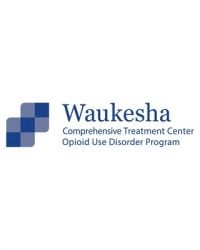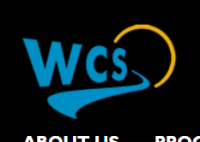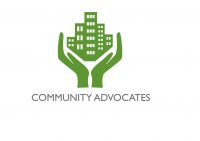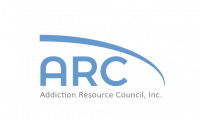
Addiction Resource Council
Drug Rehab Center in Waukesha, Wisconsin
- Substance Abuse
- Opioid Addiction
- Mental Health
- Drug Addiction
- Alcoholism
Addiction Resource Council provides a comprehensive suite of evidence-based treatment methods such as cognitive-behavioral therapy (CBT), motivational interviewing (MI) and 12-step facilitation, along with medication-assisted treatments like Suboxone and Vivitrol, as well as onsite detoxification services to help those struggling with addiction and mental health issues achieve lasting recovery.
Multiple patients have reported Addiction Resource Council as permanently closed.
Research other rehabs in Waukesha, Wisconsin, or get help finding an open facility.
Our experts will find you an alternative facility.
(888) 674-0062 24/7 Free, Confidential, Expert HotlineAbout Addiction Resource Council in Wisconsin
Addiction Resource Council, based in Waukesha, Wisconsin, is an Addiction Treatment Facility providing a wide range of services to people suffering from Alcoholism, Opioid Addiction, Substance Abuse, Drug Addiction and Mental Health. At ARC, a variety of treatments are offered including Drug Rehab, Outpatient Levels of Care, and other evidence-based treatments, all with the focus and dedication to help individuals overcome their addiction and live healthy, fulfilling lives. To make treatment accessible, ARC accepts Private Health Insurance, and also provides high-quality, comprehensive services focused on the individual needs of each patient.
ARC is committed to providing the best possible care to everyone that visits their facility. Their highly trained and experienced team uses a combination of evidence-based treatments and individualized care to ensure that each patient is given the best opportunity to recover. Additionally, the facility is accredited by The Joint Commission, and holds licensure from the Alcohol & Drug Abuse Division of the Wisconsin Department of Health Services, ensuring that any services or treatments provided meet and exceed the highest standards of care.
Genders
Ages
Modality
Additional
Conditions and Issues Treated
Some addicts can benefit from substance abuse treatment, which is designed to help them become and remain sober without the use of medications. These programs are typically used by those struggling with drugs like marijuana or hallucinogens. However, they might be beneficial for those with a co-occurring mental health disorder like schizophrenia, major depression or bipolar disorder.
During this type of treatment, the addict will meet with therapists and other professionals on a regular basis to learn coping skills and healthy ways to deal with their addiction and mental health disorder.
Treatment programs often combine medications with counseling, support groups and even medical services like those found in hospitals or doctor’s offices. There are also detoxification services that addicts can use to get sober and avoid severe withdrawal symptoms.
Opioids are a group of drugs that include substances such as heroin, morphine, and oxycodone. These drugs activate opioid receptors in the brain, which produce pleasurable feelings. Opioid addiction occurs when drugs are abused at increasing rates or increasing amounts because the body becomes tolerant of them.
Opioid addiction is typically diagnosed when drug abuse becomes a typical behavior that interferes with an individual’s ability to function daily. The use of the substance results in consequences like legal problems.
Treatment for opioid addiction varies depending on each individual’s needs. Some treatments focus on replacing opioids with other drugs that have similar effects of reducing withdrawal symptoms. Other treatments aim to reduce the risk of relapse by providing psychological support or using more natural methods.
Levels of Care Offered
This center offers a variety of custom treatment tailored to individual recovery. Currently available are Drug Rehab, Outpatient, with additional therapies available as listed below.
Outpatient programs offer a lower intensity level of addiction treatment than inpatient facilities. They are ideal for those who have graduated from inpatient facilities, have a supportive home environment, and are motivated to commit to the program. Services offered include medication-assisted treatment, individual and group therapy, and peer group support.
This treatment is a popular option for those suffering from a lower intensity addiction. It is not advisable for someone who needs to go through a medically supervised detox or does not have a supportive home environment. It requires motivation and dedication to commit to the program without constant monitoring.
Therapies & Programs
During individual therapy at Addiction Resource Council in , the person in recovery meets with a therapist one on one to go over their situation and learn from past mistakes. The counselor or therapist will use this time to address the causes of addiction, triggers, and any mental issue or dual diagnosis. They will also address aftercare plans, giving them the best chances of long-term sobriety.
This therapeutic process is very intense and challenging to go through. Some clients may find it easier to open up with someone apart from their family or loved ones who understand their struggles and experience with addiction.
Family therapy is designed to help addicts get clean and sober by using what they love the most; their family. Most drug treatment centers make it mandatory that the addict’s family attend therapy sessions, which is great because having everyone there to support them makes it much easier for them to get clean. Not only are they surrounded by people who want them to get better, but everyone is there because they want the best for them, not because they feel like they have to be.
Drug addicts are often surrounded by resentful or uneducated family members who would, at times, rather see them stay addicted because it makes their own lives easier. Sometimes they don’t understand what the addiction is or how they play a part in it. They know that during and after the addict’s sobriety journey, they will face challenges and changes that they aren’t sure how to handle. This can be very tough for an addict to go through on their own, which is why it’s so important that they have the support of their family. Just because someone is an addict does not mean that they don’t deserve the love and support of those around them.
Addicts in Waukesha, WI can find support in group therapy at Addiction Resource Council by finding peers who understand their situation and being held accountable. They also learn to develop faith, understanding, and insight into their addiction through shared conversations.
Group Therapy is employed by drug treatment centers to provide the recovering addict with a platform to talk about their feelings and experiences. It also provides for an opportunity to learn from other addicts who have successfully overcome their addiction. It is recommended that all group members be recovering addicts for this type of therapy to work.
Payment Options Accepted
For specific insurance or payment methods please contact us.
Is your insurance accepted?
Ask an expert, call (888) 674-0062
Additional Details
Specifics, location, and helpful extra information.
Waukesha, Wisconsin 53186 Phone Number(262) 524-7921 Meta DetailsUpdated November 25, 2023
Staff Verified
Addiction Resource Council Patient Reviews
There are no reviews yet. Be the first one to write one.
Waukesha, Wisconsin Addiction Information
Wisconsin has some of the highest rates in the United States for both adolescent and adult substance abuse. Since 2009, the state has been experiencing the same escalating rates of drug abuse and addiction as the rest of the country. The major concerns are the misuse of prescription painkillers and the escalating number of deaths due to alcohol-related liver disease.
The drug addiction problem in Waukesha, Wisconsin, is fairly bad. Around 9.4% of people in Waukesha, WI, abuse drugs, and around 5.6% abuse alcohol. Drug addiction can lead to criminal activity, job loss, financial instability, and social isolation. The most common types of treatment available in Waukesha, Wisconsin, are inpatient, outpatient, and residential.
Treatment in Nearby Cities
- Delavan, WI (35.9 mi.)
- Two Rivers, WI (83.4 mi.)
- Sussex, WI (6.7 mi.)
- Darlington, WI (100.2 mi.)
- Waukesha, WI (2.4 mi.)
Centers near Addiction Resource Council

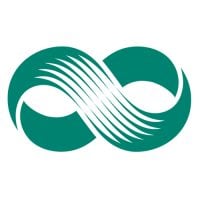
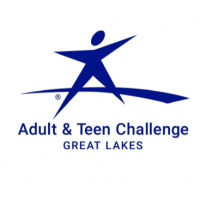
The facility name, logo and brand are the property and registered trademarks of Addiction Resource Council, and are being used for identification and informational purposes only. Use of these names, logos and brands shall not imply endorsement. RehabNow.org is not affiliated with or sponsored by Addiction Resource Council.

